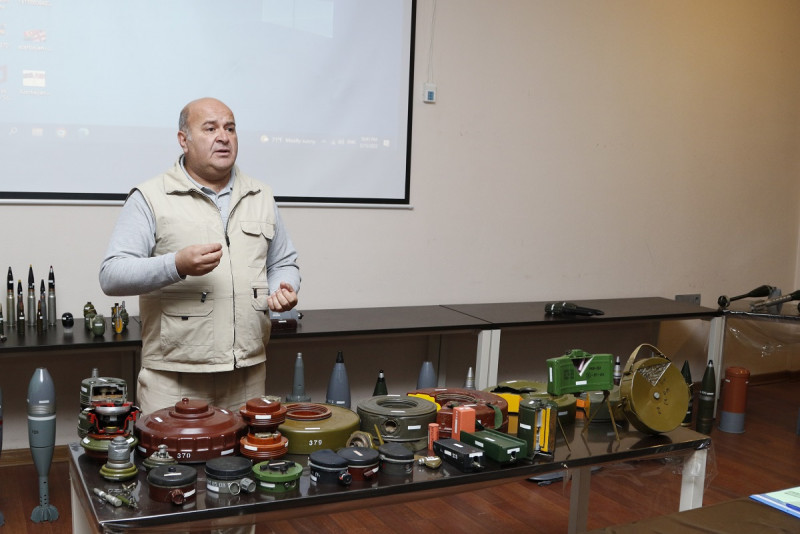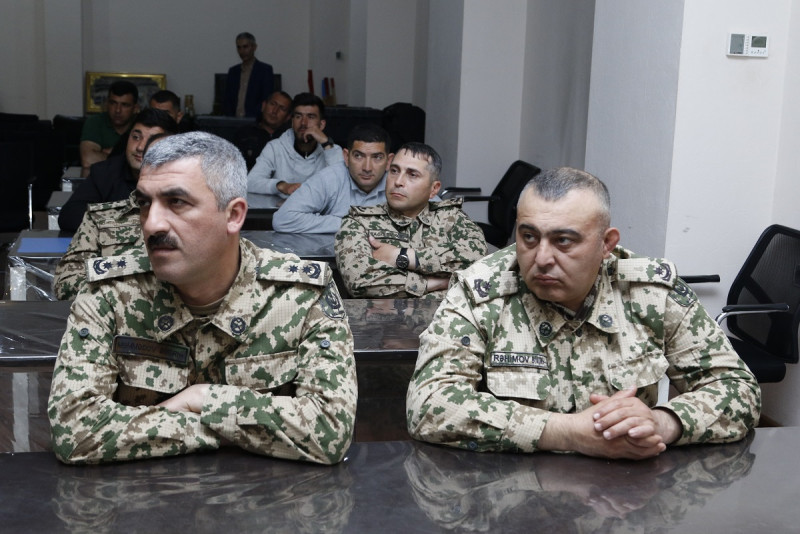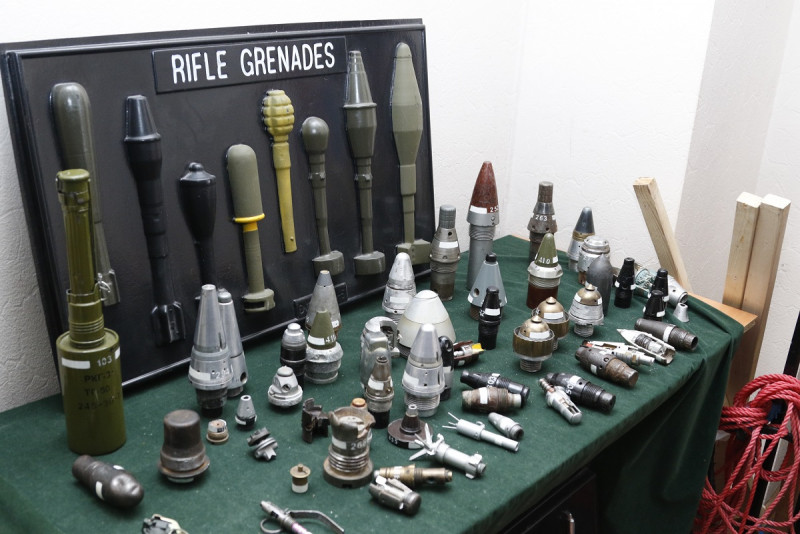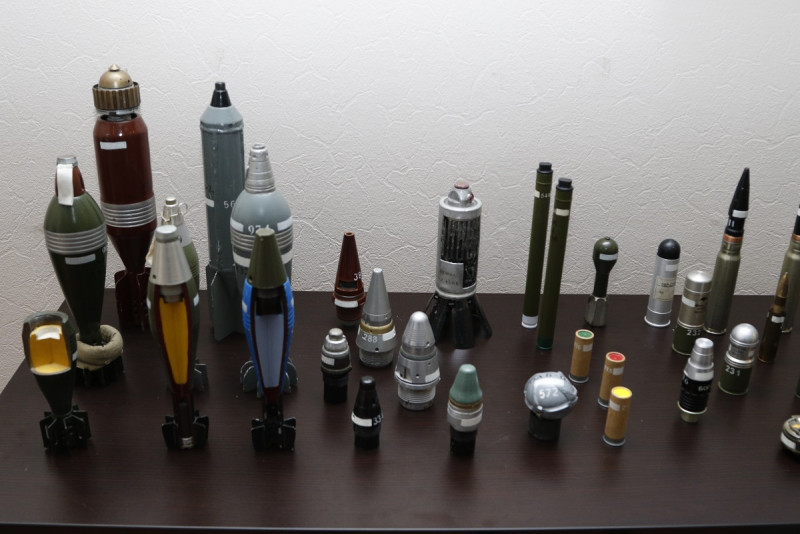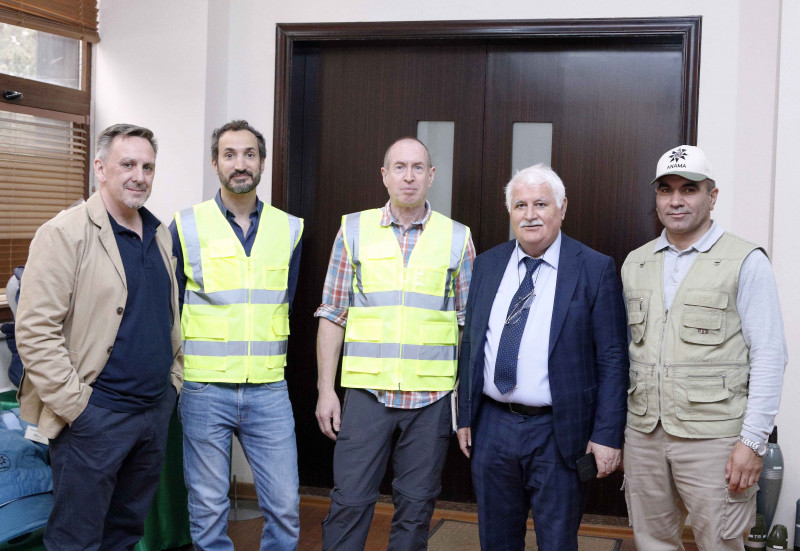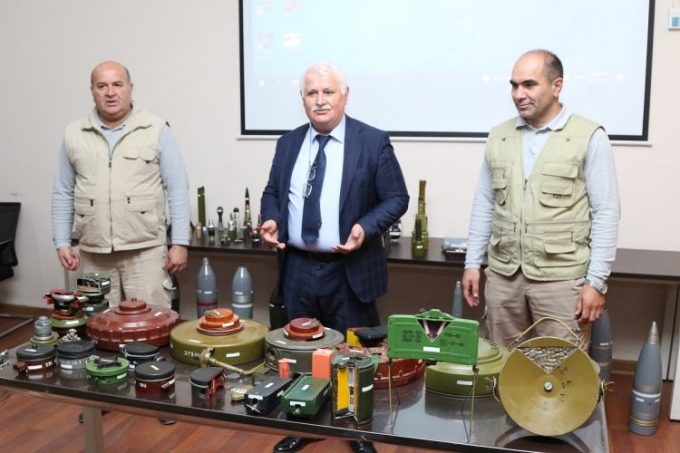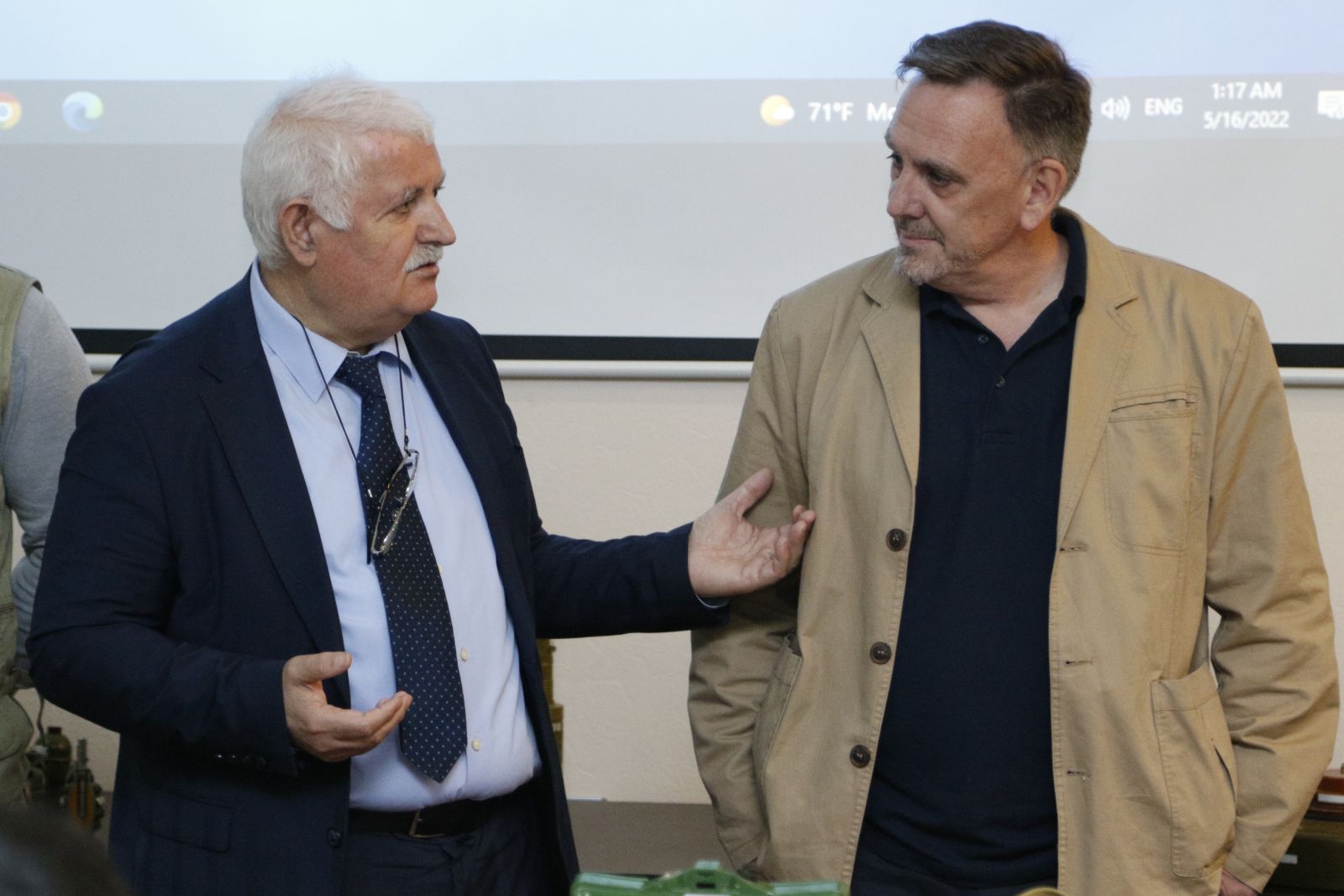With the financial support of the European Union, the United Nations Development Program, ANAMA and the International Eurasia Press Fund, the project "Ensuring rehabilitation assistance for the protection, livelihood and economic security of the population affected by the conflict in Azerbaijan" has been launched. Initial trainings were launched in Goygol region within the project.
The trainings, which started at ANAMA's Goygol regional training base, are conducted by professional trainers in two phases - Non-Technical Survey (NTS) and Explosive Ordnance Disposal (EOD).
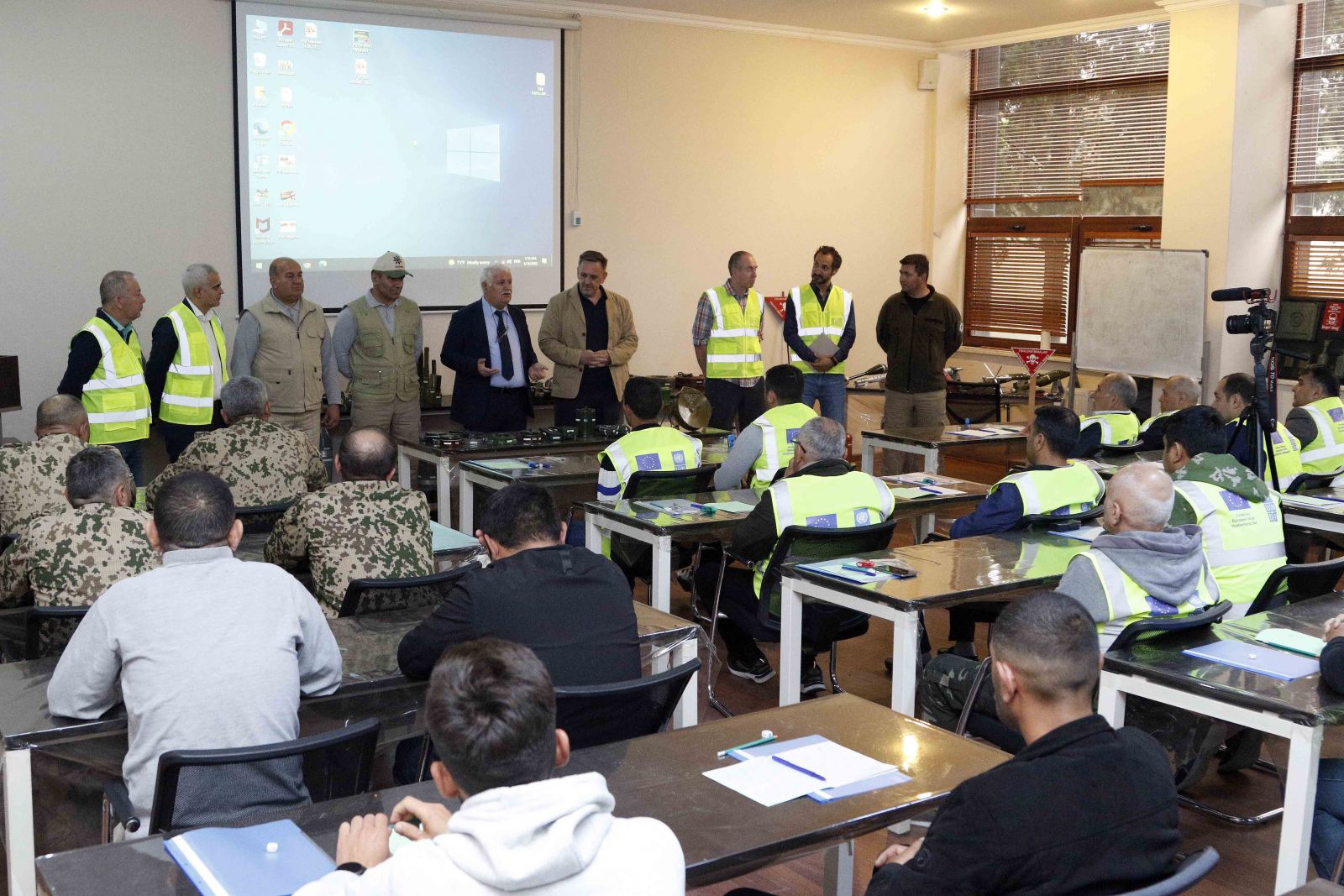
Welcoming the participants at the opening of the training, President of the International Eurasia Press Fund Umud Mirzayev as well as UNDP representatives and ANAMA trainers first wished success to all the staff. The IEPF president spoke about the importance of the project afterwards.
"Today we are launching a grant project signed between the IEPF and the UN Development Program. I believe that this project, which we are implementing with the support of ANAMA, will support demining operations in Azerbaijan and contribute to accelerating the process of returning to the liberated territories."
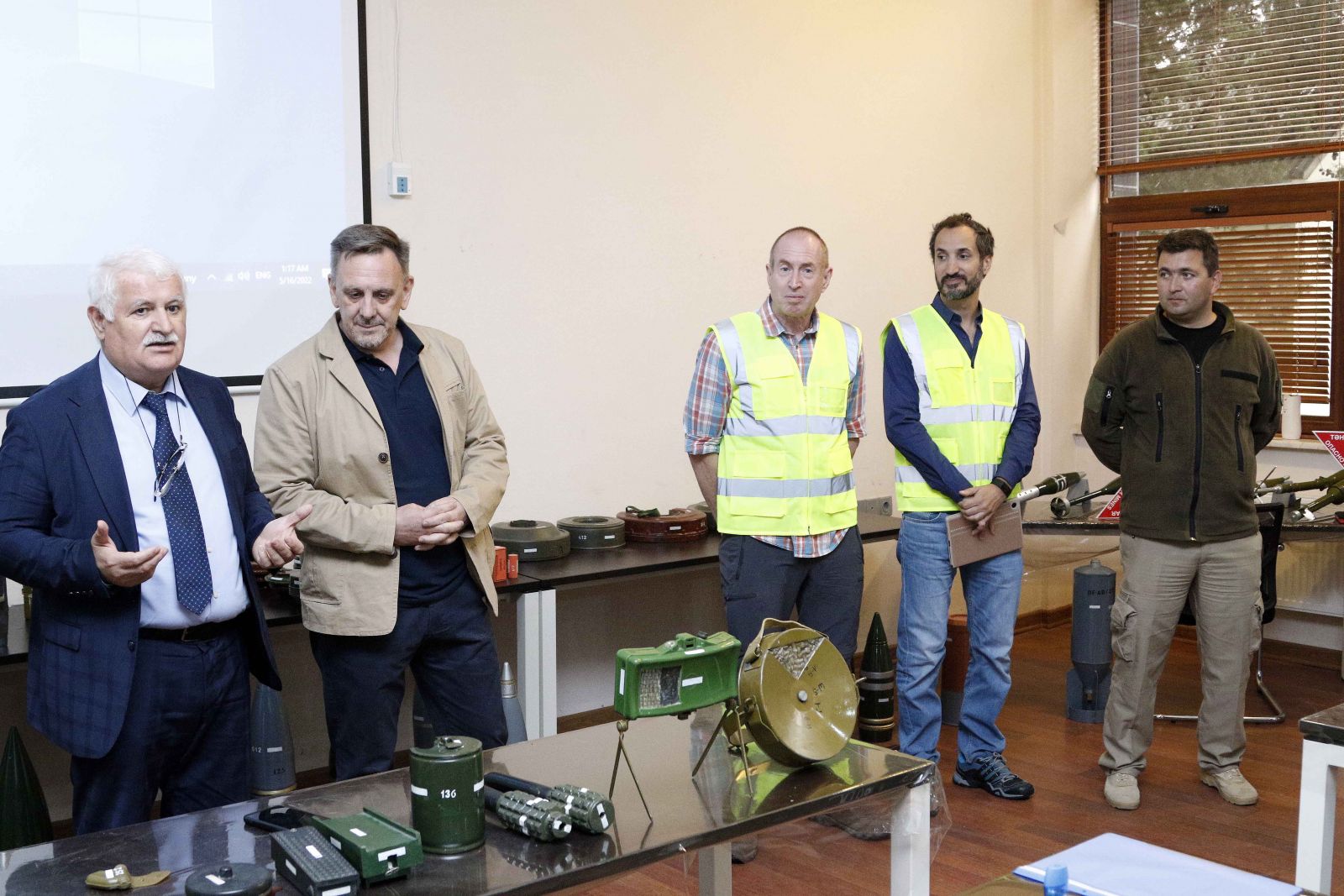
Umud Mirzayev also gave an outline about the work done by ANAMA so far.
“The Azerbaijan Mine Action Agency (ANAMA), as a specialized agency for mine and explosive ordnance safety in Azerbaijan, has conducted thousands of trainings to date. I would like to note that the IEPF has joined the UN Mine Action Program in Azerbaijan since early 2000 with the support of the United Nations Development Program, and is one of ANAMA's key partners in the process of clearing the remnants of war and mines in Azerbaijan.”
.jpg)
During the training, UNDP Project Chief Technical Adviser Mark Buswell, Survey Adviser Don MacDonald and UNDP Information Manager Adviser Juan Andres Mussini also greeted the participants and wished them success in their future endeavors.
It should be noted that the 13-month project will be implemented in two main areas. A total of 9 Non-Technical Survey (NTS) teams were formed in 3 groups, each with 3 researchers. Another key area, Explosive Ordnance Disposal (EOD), has a total of six staff members, including group leader and deputy group leader. The non-technical survey teams are expected to conduct research along the former line of contact and in the liberated areas. EOD teams will ensure the demining of mines and unexploded ordnance in accordance with the challenges identified and recorded during the study.
It should be noted that the main goal of the grant project signed between the IEPF and UNDP is to conduct systematic non-technical research to better determine the nature, extent and impact of explosive ordnance contamination in Azerbaijan, to carry out properly targeted and comprehensive demining activities and to neutralize the mines and unexploded ordnance detected.
